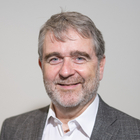Mitarbeiter sonstige
The international battle against tax fraud and evasion: a key part of the post-2015 agenda
von Haldenwang, Christian / Uwe KerkowMitarbeiter sonstige (2014)
in: Thomas Fues / Jiang Ye (eds.), United Nations Post-2015 Agenda for global development: perspectives from China and Europe, Bonn: German Development Institute / Deutsches Institut für Entwicklungspolitik (DIE), 323-335
ISBN: 978-3-88985-649-4
Some actors propose that the reduction of illicit flows and tax evasion and the recovery of stolen assets be included in the new global agenda. This initiative deserves support, precisely because many of the poorer countries labour under a disastrous combination of weak national tax and control agencies together with international tax loopholes and regulatory gaps.
Large international companies above all use this constellation to shift their profits with the help of internal transfer prices to countries with particularly low tax burdens (so-called "tax havens"). And it is often much too easy for persons with large private assets to circumvent tax obligations in their own countries. These illicit capital outflows lie on an order of several magnitudes above inflows from aid, not to mention their negative impacts regarding governance and corruption.
Most "tax havens" are found in OECD countries or smaller states and territories which are dependent on them. At the same time, it is the OECD countries which have the market power and public infrastructure to effectively implement controls and plug legal loopholes. But the major emerging countries too, along with resource-rich developing countries, must be integrated into this effort if actions which have been decided upon are to take effect on a worldwide basis. This topic is thus particularly relevant for a global agenda "Beyond Aid".
Contact
Cornelia Hornschild
Publication Coordinator
E-mail Cornelia.Hornschild@idos-research.de
Phone +49 (0)228 94927-135
Fax +49 (0)228 94927-130
Alexandra Fante
Librarian/ Open Access Coordinator
E-Mail Alexandra.Fante@idos-research.de
Telefon +49 (0)228 94927-321
Fax +49 (0)228 94927-130



![[Translate to English:] Photo: Alexandra Fante, Bibliothekarin/Open Access-Koordinatorin](/fileadmin/_processed_/f/0/csm__c_Deutsches-Institut-fuer-Entwicklungspolitik_Fante_94ce4fa1ba.jpg)